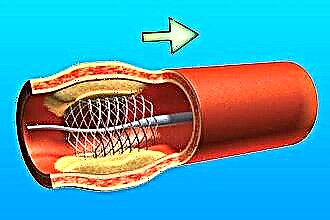Pyelonephritis is a condition that affects the kidneys. It lies in the inflammatory process caused by pathogenic and opportunistic microorganisms. Hypertension is very common in people who have pyelonephritis. 40% of patients have a persistent increase in blood pressure, since its indicators depend not only on the work of the cardiovascular system, but also on the kidneys. Disruptions in the work of this paired organ can even lead to a hypertensive crisis.

Causes of nephrogenic hypertension
For the kidneys to perform their functions normally, there must be a normal level of pressure in the vessels leading to them. It is for this that the organs produce the hormone renin. It regulates the pressure indicator only if all processes are normal. If the blood flow in the kidneys decreases, then renin is produced in large quantities. It is able to interact with other hormonal substances that the body produces. And this interaction leads to vasoconstriction, fluid and sodium retention in the body. As a result, blood circulation is impaired, and high blood pressure is manifested.
One of the reasons for the manifestation of hypertension can be pronounced pyelonephritis. This inflammatory process leads to the fact that the main structures of the organ are damaged, namely, its vessels. Tissues are depleted, as a result, the processes by which depressants are produced are weakened. They are the ones who are able to reduce pressure. All these pathological changes lead to persistent hypertension with kidney damage.
Quite often, stable hypertension in chronic pyelonephritis occurs due to an ischemic process in the kidneys, since vascular sclerosis is observed, which is actively progressing.
It should be noted that in addition to the mechanisms of development of this pathology, which are described above, there may be other reasons for an increase in blood pressure in pyelonephritis:
- Coarctation of the aorta.
- Aneurysm localized to the renal artery.
- Atherosclerotic lesions of the renal arteries, which can also lead to ischemic processes.
- Vascular embolism.
- Glomerulonephritis.
- Urolithiasis disease.
All this can not only cause pyelonephritis with high blood pressure, but also significantly aggravate the course of the pathology.
The relationship of pathologies
It should be noted that arterial hypertension is a complication of pyelonephritis. These conditions develop due to renal failure and nephroangiosclerosis. In acute pyelonephritis, hypertension does not manifest itself, only in chronic pyelonephritis.
Chronic pyelonephritis can be bilateral and unilateral. In both cases, arterial hypertension is manifested. Sometimes it becomes cancerous. This means that blood pressure reaches fairly high levels. A feature is that the diastolic rate increases significantly. In addition to the progression of pyelonephritis, other complications are expected in the malignant course of hypertension.
An increase in blood pressure occurs during exacerbations of chronic pyelonephritis, or is chronic.
The peculiarities of the course of these joint pathologies is a sharp deterioration in the patient's well-being, while swelling increases and cardiac symptoms increase.
The whole difficulty of the joint course of pyelonephritis and hypertension is difficult treatment, since conservative therapy is ineffective.
Symptoms
The symptomatology of hypertension against the background of pyelonephritis does not differ much from the usual hypertension. There are times when a person has no symptoms of kidney inflammation at all.
The most common signs are:
- Swelling of the face.
- Vomiting urge.
- A sharp deterioration in general health.
- Tremor of the limbs.
- Increased body temperature.
- Pain syndrome is localized in the lumbar region.
 There will also be violations of the bladder. These include frequent urge to urinate, while cramps and burning sensations will be felt. Also, urine may change color, there may be an admixture of blood in it, and a pungent odor will appear.
There will also be violations of the bladder. These include frequent urge to urinate, while cramps and burning sensations will be felt. Also, urine may change color, there may be an admixture of blood in it, and a pungent odor will appear.
If pyelonephritis occurs in a latent form, then the person will be disturbed by nausea and vomiting, constant headaches, localized in the back of the head, dizziness. With minor physical exertion, shortness of breath and discomfort in the chest appears. Such symptoms are most similar to hypertension, and if there are only such signs, then the diagnosis is difficult. Sometimes in patients, lower back pain is added to these symptoms. With such a symptom, the doctor, already with a preliminary physical examination, will be able to suggest pyelonephritis.
Nephrogenic arterial hypertension can take several forms:
- Latent. This is a condition in which a person shows mild symptoms, weakness is observed, there is a systemic increase in body temperature, an increase in pressure.
- Recurrent. In this case, the disease in humans manifests itself in periods - exacerbations and remissions. Symptoms during an exacerbation are pronounced: severe back pain, a significant increase in temperature, impaired urinary function, arterial hypertension, while manifested by severe headache and dizziness.
- Hypertensive. This is a condition in which only the symptoms of hypertension are pronounced, and there are no signs of pyelonephritis. Symptoms include headaches, shortness of breath, cardiac asthma, and cardialgia. Also, a frequent manifestation of this form of the disease is a hypertensive crisis, therefore, treatment is often prescribed for hypertension, which means that the underlying pathology and the cause of the symptoms are not eliminated.
- Anemic. This condition is manifested by anemic syndrome. Hypertensive symptoms are not expressed, a person may not even pay attention to them.
- Azotemic. This form is typical when there is already chronic kidney failure.
If renal hypertension is not treated promptly, the condition can worsen and other symptoms begin to appear. They indicate such pathologies:
- Bacteriotoxic shock.
- Hypertension.
- Renal and heart failure.
- Paranephritis.
Bacteriotoxic shock is a frequent complication of pyelonephritis, while a purulent lesion manifests itself, which develops very quickly. The pus in the organs is very toxic to healthy tissues. Quite often, such patients end up in the hospital, where they are given resuscitation measures.
Renal failure is fairly easy to treat, and the process is reversible. When, as a result of this condition, the filtration capacity of the kidneys decreases, then edema, vomiting, severe pain in the back, and general weakness are manifested.
With paranephritis, a person will have pain in the lumbar region, severe malaise, chills, high body temperature, and anemia develops.
Also, at the same time, high blood pressure is manifested.
Treatment
In order to correctly diagnose and prescribe adequate treatment, the doctor must send the patient to a comprehensive diagnosis. In this case, it consists of laboratory tests, ultrasound of the kidneys, radinucleide renography.
Therapy for renal hypertension should include:
- Taking medicines to eliminate the inflammatory process in the kidneys.
- The use of drugs that improve metabolic processes and kidney function.
- Symptomatic treatment with antihypertensive drugs.
- In this case, a diet is required.
It is especially important for hypertension, and for any other kidney disease, to adjust the lifestyle. It is necessary to completely abandon alcohol and smoking, with obesity, it is necessary to lose weight, minimize salt intake. Only by observing these rules, drug treatment gives the maximum effect.
Therapy for high blood pressure in pyelonephritis is the same as in hypertension. But the drugs are taken continuously. The dosage is set by the doctor individually, since the pressure should go down gradually. Sharp surges are very dangerous.
Antihypertensive drugs for pyelonephritis should be prescribed in a complex. Often 2-3 drugs are prescribed, which have a different mechanism of action. This takes into account whether there are already complications from the cardiovascular system. The scheme of their reception is established. Monotherapy is prescribed if the patient has an initial stage of hypertension, and there is no damage to the cardiovascular system. Low doses of the drug are prescribed, this is necessary in order to prevent the manifestation of side effects. Sometimes the antihypertensive drug is taken several times.
If the patient has a history of diabetes mellitus, proteinuria, chronic renal failure, and at the same time the blood pressure is higher than 160/100 mm Hg. Art., then combined therapy is prescribed immediately. In this case, one antihypertensive drug will not give the expected effect.
With pyelonephritis, hypertension is treated with drugs that have a prolonged effect, usually drugs that work for 24 hours.
Drugs that are prescribed for arterial hypertension:
- ACE inhibitors;
- angiotensin receptor blockers;
- calcium channel blockers;
- diuretics;
- beta-blockers and alpha-blockers.
Which groups of drugs to use in complex therapy is decided only by the doctor, based on the individual characteristics of the organism and the results of the examination. But most often, with inflammation of the kidneys, ACE inhibitors, calcium channel blockers and angiotensin receptor blockers are prescribed, since they also have a nephroprotective effect.
In addition to antihypertensive drugs, drugs are prescribed that have their effect on the inflammatory process. In this case, it is necessary to eliminate the infection, to establish the process of urodynamics of the upper ureters, and also to improve blood flow in the kidneys. Some patients need to take medications both for exacerbation of pyelonephritis and during the remission period.
In this case, antibacterial agents are mandatory, but they are also selected extremely carefully. A wide spectrum of drugs that are not toxic to the kidneys will be required, and the agent must be excreted from the body through urine. In the acute period, antibiotics relieve the inflammatory process, and thus have an even mild hypotensive effect.
Sometimes, with prolonged pyelonephritis, it is necessary to remove the kidney, provided that the second is functioning normally. But there are also difficult cases when bilateral nephrectomy is performed with further transplant of a healthy kidney.
Arterial hypertension with pyelonephritis is a pronounced symptom, and this condition must be dealt with in a complex manner. At the same time, you cannot just take antihypertensive drugs, it is important to remove the main reason for which the pressure rises. To do this, you should undergo a comprehensive examination. You cannot prescribe treatment yourself, this may be fraught with the removal of the kidney.



